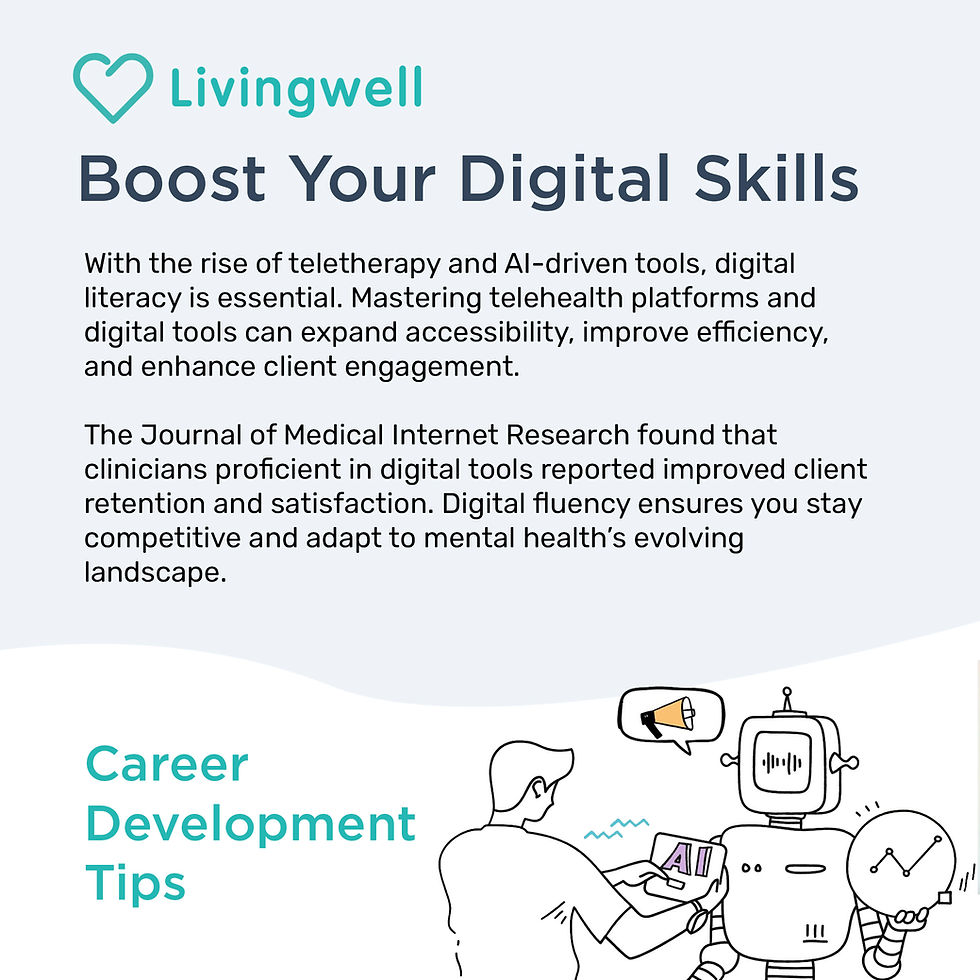Stay Informed on Mental Health Policy
- Oct 16, 2025
- 2 min read

In the field of mental health, policies and regulations are constantly shifting, impacting everything from funding and insurance coverage to accessibility and treatment modalities. For clinicians, staying informed on mental health policy is vital for ethical practice, client advocacy, and career longevity.
Why Policy Matters to the Practicing Clinician
Policies set the stage for how mental health care is delivered, reimbursed, and integrated into the broader healthcare system. Ignoring them can lead to compliance issues, missed opportunities, and ineffective advocacy.
Informed Ethical Practice: Policy changes—such as updates to confidentiality rules (like HIPAA) or new standards for telehealth—directly influence ethical and legal boundaries that you must uphold.
Client Advocacy: Understanding policy allows you to effectively advocate for your clients' access to care, insurance coverage, and rights within the system.
Professional Relevance: Being knowledgeable about key policy trends, such as efforts to increase accessibility, affordability, and integration of care, positions you as a forward-thinking professional.
Anticipating Industry Shifts: Policy often drives industry developments, such as the increased focus on addressing mental health in minority and underserved populations or the push for early intervention programs. Staying informed helps you align your practice with future growth areas.
Actionable Steps to Stay Policy-Current
Make policy monitoring a regular part of your professional routine:
Follow Key Organizations: Regularly check for updates from major professional bodies (APA, ACA, NASW) and government institutions (like the National Institute of Mental Health) that are actively involved in research, education, and policy.
Engage in Law and Ethics CEs: As highlighted in ethical practice, prioritize Continuing Education Units focused on current law and ethics. These programs provide specific updates on legal and regulatory changes.
Network with Policy-Minded Peers: Connect with colleagues and professional groups who focus on advocacy or public health to share insights and discuss the practical implications of new policies.
Utilize Free Resources: Take advantage of free education and outreach materials from reputable institutions that are designed to spread the word about mental health topics and science education.


